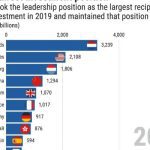The opposition to the implementation of the revised cashless Policy of the Central Bank of Nigeria is not a strange one at all and should have been expected.
Investment Strategist and Investment Strategy Manager for Afrinvest West Africa, Temitope Omosuyi, disclosed this while speaking on the TVC News programme, Business Nigeria, with Tolulope Ogunjobi.
He said the Cashless Policy started in 2012 by the Central Bank of Nigeria with Lagos State as the Pilot State has achieved to some extent some of the stated aims of its introduction despite the efforts of saboteurs within the system.
He disclosed that the twin objects of the failed transactions and fraud are a major challenge to the implementation of the policy.
He disclosed that a closer look at the policy from 2012 when Lagos was the pilot State and 2013 when 5 Other States were included and 2019 when it was made a nationwide policy will show that it has achieved some of its stated objectives.
He however said this does not mean that there are no drawbacks to the implementation of the Policy across the Country.
He added that some of the drawbacks are not within the purview of the nations’ monetary authorities.
Going Further, he said the policy may not have helped substantially to tame inflation but it has ensured financial system stability.
He added that ATM Transactions, Transfers and payment platforms have grown astronomically despite the threat of fraud and this according to him was particularly apparent during the COVID-19 Lockdown in Nigeria in 2020.
He said the electronic transactions have added significantly to the revenue of banks ensuring that Banks are now more liquid than ever making it easier for Banks to be more profitable and having better Cash and capital adequacy in the sector.
He added that Non Performing Loans in the banking sector has reduced from 15% to just about 5% from the highs of 2015-2016.
According to him fraud within the banking sector has grown significantly within the same period with about 14 Billion Naira worth of fraud within the Sector with the E- Platforms particularly vulnerable to fraud.
He however said this is not new since any new innovations also come with those trying to take advantage of it through their own innovative ways.
He however added that the Banks have come a long way but need to improve far more than they have especially their online applications which have been down for sometime.
The opposition to the implementation of the revised cashless Policy of the Central Bank of Nigeria is not a strange one at all and should have been expected.
Investment Strategist and Investment Strategy Manager for Afrinvest West Africa, Temitope Omosuyi, disclosed this while speaking on the TVC News programme, Business Nigeria, with Tolulope Ogunjobi.
He said the Cashless Policy started in 2012 by the Central Bank of Nigeria with Lagos State as the Pilot State has achieved to some extent some of the stated aims of its introduction despite the efforts of saboteurs within the system.
He disclosed that the twin objects of the failed transactions and fraud are a major challenge to the implementation of the policy.
He disclosed that a closer look at the policy from 2012 when Lagos was the pilot State and 2013 when 5 Other States were included and 2019 when it was made a nationwide policy will show that it has achieved some of its stated objectives.
He however said this does not mean that there are no drawbacks to the implementation of the Policy across the Country.
He added that some of the drawbacks are not within the purview of the nations’ monetary authorities.
Going Further, he said the policy may not have helped substantially to tame inflation but it has ensured financial system stability.
He added that ATM Transactions, Transfers and payment platforms have grown astronomically despite the threat of fraud and this according to him was particularly apparent during the COVID-19 Lockdown in Nigeria in 2020.
He said the electronic transactions have added significantly to the revenue of banks ensuring that Banks are now more liquid than ever making it easier for Banks to be more profitable and having better Cash and capital adequacy in the sector.
He added that Non Performing Loans in the banking sector has reduced from 15% to just about 5% from the highs of 2015-2016.
According to him fraud within the banking sector has grown significantly within the same period with about 14 Billion Naira worth of fraud within the Sector with the E- Platforms particularly vulnerable to fraud.
He however said this is not new since any new innovations also come with those trying to take advantage of it through their own innovative ways.
He however added that the Banks have come a long way but need to improve far more than they have especially their online applications which have been down for sometime.
The opposition to the implementation of the revised cashless Policy of the Central Bank of Nigeria is not a strange one at all and should have been expected.
Investment Strategist and Investment Strategy Manager for Afrinvest West Africa, Temitope Omosuyi, disclosed this while speaking on the TVC News programme, Business Nigeria, with Tolulope Ogunjobi.
He said the Cashless Policy started in 2012 by the Central Bank of Nigeria with Lagos State as the Pilot State has achieved to some extent some of the stated aims of its introduction despite the efforts of saboteurs within the system.
He disclosed that the twin objects of the failed transactions and fraud are a major challenge to the implementation of the policy.
He disclosed that a closer look at the policy from 2012 when Lagos was the pilot State and 2013 when 5 Other States were included and 2019 when it was made a nationwide policy will show that it has achieved some of its stated objectives.
He however said this does not mean that there are no drawbacks to the implementation of the Policy across the Country.
He added that some of the drawbacks are not within the purview of the nations’ monetary authorities.
Going Further, he said the policy may not have helped substantially to tame inflation but it has ensured financial system stability.
He added that ATM Transactions, Transfers and payment platforms have grown astronomically despite the threat of fraud and this according to him was particularly apparent during the COVID-19 Lockdown in Nigeria in 2020.
He said the electronic transactions have added significantly to the revenue of banks ensuring that Banks are now more liquid than ever making it easier for Banks to be more profitable and having better Cash and capital adequacy in the sector.
He added that Non Performing Loans in the banking sector has reduced from 15% to just about 5% from the highs of 2015-2016.
According to him fraud within the banking sector has grown significantly within the same period with about 14 Billion Naira worth of fraud within the Sector with the E- Platforms particularly vulnerable to fraud.
He however said this is not new since any new innovations also come with those trying to take advantage of it through their own innovative ways.
He however added that the Banks have come a long way but need to improve far more than they have especially their online applications which have been down for sometime.
The opposition to the implementation of the revised cashless Policy of the Central Bank of Nigeria is not a strange one at all and should have been expected.
Investment Strategist and Investment Strategy Manager for Afrinvest West Africa, Temitope Omosuyi, disclosed this while speaking on the TVC News programme, Business Nigeria, with Tolulope Ogunjobi.
He said the Cashless Policy started in 2012 by the Central Bank of Nigeria with Lagos State as the Pilot State has achieved to some extent some of the stated aims of its introduction despite the efforts of saboteurs within the system.
He disclosed that the twin objects of the failed transactions and fraud are a major challenge to the implementation of the policy.
He disclosed that a closer look at the policy from 2012 when Lagos was the pilot State and 2013 when 5 Other States were included and 2019 when it was made a nationwide policy will show that it has achieved some of its stated objectives.
He however said this does not mean that there are no drawbacks to the implementation of the Policy across the Country.
He added that some of the drawbacks are not within the purview of the nations’ monetary authorities.
Going Further, he said the policy may not have helped substantially to tame inflation but it has ensured financial system stability.
He added that ATM Transactions, Transfers and payment platforms have grown astronomically despite the threat of fraud and this according to him was particularly apparent during the COVID-19 Lockdown in Nigeria in 2020.
He said the electronic transactions have added significantly to the revenue of banks ensuring that Banks are now more liquid than ever making it easier for Banks to be more profitable and having better Cash and capital adequacy in the sector.
He added that Non Performing Loans in the banking sector has reduced from 15% to just about 5% from the highs of 2015-2016.
According to him fraud within the banking sector has grown significantly within the same period with about 14 Billion Naira worth of fraud within the Sector with the E- Platforms particularly vulnerable to fraud.
He however said this is not new since any new innovations also come with those trying to take advantage of it through their own innovative ways.
He however added that the Banks have come a long way but need to improve far more than they have especially their online applications which have been down for sometime.
The opposition to the implementation of the revised cashless Policy of the Central Bank of Nigeria is not a strange one at all and should have been expected.
Investment Strategist and Investment Strategy Manager for Afrinvest West Africa, Temitope Omosuyi, disclosed this while speaking on the TVC News programme, Business Nigeria, with Tolulope Ogunjobi.
He said the Cashless Policy started in 2012 by the Central Bank of Nigeria with Lagos State as the Pilot State has achieved to some extent some of the stated aims of its introduction despite the efforts of saboteurs within the system.
He disclosed that the twin objects of the failed transactions and fraud are a major challenge to the implementation of the policy.
He disclosed that a closer look at the policy from 2012 when Lagos was the pilot State and 2013 when 5 Other States were included and 2019 when it was made a nationwide policy will show that it has achieved some of its stated objectives.
He however said this does not mean that there are no drawbacks to the implementation of the Policy across the Country.
He added that some of the drawbacks are not within the purview of the nations’ monetary authorities.
Going Further, he said the policy may not have helped substantially to tame inflation but it has ensured financial system stability.
He added that ATM Transactions, Transfers and payment platforms have grown astronomically despite the threat of fraud and this according to him was particularly apparent during the COVID-19 Lockdown in Nigeria in 2020.
He said the electronic transactions have added significantly to the revenue of banks ensuring that Banks are now more liquid than ever making it easier for Banks to be more profitable and having better Cash and capital adequacy in the sector.
He added that Non Performing Loans in the banking sector has reduced from 15% to just about 5% from the highs of 2015-2016.
According to him fraud within the banking sector has grown significantly within the same period with about 14 Billion Naira worth of fraud within the Sector with the E- Platforms particularly vulnerable to fraud.
He however said this is not new since any new innovations also come with those trying to take advantage of it through their own innovative ways.
He however added that the Banks have come a long way but need to improve far more than they have especially their online applications which have been down for sometime.
The opposition to the implementation of the revised cashless Policy of the Central Bank of Nigeria is not a strange one at all and should have been expected.
Investment Strategist and Investment Strategy Manager for Afrinvest West Africa, Temitope Omosuyi, disclosed this while speaking on the TVC News programme, Business Nigeria, with Tolulope Ogunjobi.
He said the Cashless Policy started in 2012 by the Central Bank of Nigeria with Lagos State as the Pilot State has achieved to some extent some of the stated aims of its introduction despite the efforts of saboteurs within the system.
He disclosed that the twin objects of the failed transactions and fraud are a major challenge to the implementation of the policy.
He disclosed that a closer look at the policy from 2012 when Lagos was the pilot State and 2013 when 5 Other States were included and 2019 when it was made a nationwide policy will show that it has achieved some of its stated objectives.
He however said this does not mean that there are no drawbacks to the implementation of the Policy across the Country.
He added that some of the drawbacks are not within the purview of the nations’ monetary authorities.
Going Further, he said the policy may not have helped substantially to tame inflation but it has ensured financial system stability.
He added that ATM Transactions, Transfers and payment platforms have grown astronomically despite the threat of fraud and this according to him was particularly apparent during the COVID-19 Lockdown in Nigeria in 2020.
He said the electronic transactions have added significantly to the revenue of banks ensuring that Banks are now more liquid than ever making it easier for Banks to be more profitable and having better Cash and capital adequacy in the sector.
He added that Non Performing Loans in the banking sector has reduced from 15% to just about 5% from the highs of 2015-2016.
According to him fraud within the banking sector has grown significantly within the same period with about 14 Billion Naira worth of fraud within the Sector with the E- Platforms particularly vulnerable to fraud.
He however said this is not new since any new innovations also come with those trying to take advantage of it through their own innovative ways.
He however added that the Banks have come a long way but need to improve far more than they have especially their online applications which have been down for sometime.
The opposition to the implementation of the revised cashless Policy of the Central Bank of Nigeria is not a strange one at all and should have been expected.
Investment Strategist and Investment Strategy Manager for Afrinvest West Africa, Temitope Omosuyi, disclosed this while speaking on the TVC News programme, Business Nigeria, with Tolulope Ogunjobi.
He said the Cashless Policy started in 2012 by the Central Bank of Nigeria with Lagos State as the Pilot State has achieved to some extent some of the stated aims of its introduction despite the efforts of saboteurs within the system.
He disclosed that the twin objects of the failed transactions and fraud are a major challenge to the implementation of the policy.
He disclosed that a closer look at the policy from 2012 when Lagos was the pilot State and 2013 when 5 Other States were included and 2019 when it was made a nationwide policy will show that it has achieved some of its stated objectives.
He however said this does not mean that there are no drawbacks to the implementation of the Policy across the Country.
He added that some of the drawbacks are not within the purview of the nations’ monetary authorities.
Going Further, he said the policy may not have helped substantially to tame inflation but it has ensured financial system stability.
He added that ATM Transactions, Transfers and payment platforms have grown astronomically despite the threat of fraud and this according to him was particularly apparent during the COVID-19 Lockdown in Nigeria in 2020.
He said the electronic transactions have added significantly to the revenue of banks ensuring that Banks are now more liquid than ever making it easier for Banks to be more profitable and having better Cash and capital adequacy in the sector.
He added that Non Performing Loans in the banking sector has reduced from 15% to just about 5% from the highs of 2015-2016.
According to him fraud within the banking sector has grown significantly within the same period with about 14 Billion Naira worth of fraud within the Sector with the E- Platforms particularly vulnerable to fraud.
He however said this is not new since any new innovations also come with those trying to take advantage of it through their own innovative ways.
He however added that the Banks have come a long way but need to improve far more than they have especially their online applications which have been down for sometime.
The opposition to the implementation of the revised cashless Policy of the Central Bank of Nigeria is not a strange one at all and should have been expected.
Investment Strategist and Investment Strategy Manager for Afrinvest West Africa, Temitope Omosuyi, disclosed this while speaking on the TVC News programme, Business Nigeria, with Tolulope Ogunjobi.
He said the Cashless Policy started in 2012 by the Central Bank of Nigeria with Lagos State as the Pilot State has achieved to some extent some of the stated aims of its introduction despite the efforts of saboteurs within the system.
He disclosed that the twin objects of the failed transactions and fraud are a major challenge to the implementation of the policy.
He disclosed that a closer look at the policy from 2012 when Lagos was the pilot State and 2013 when 5 Other States were included and 2019 when it was made a nationwide policy will show that it has achieved some of its stated objectives.
He however said this does not mean that there are no drawbacks to the implementation of the Policy across the Country.
He added that some of the drawbacks are not within the purview of the nations’ monetary authorities.
Going Further, he said the policy may not have helped substantially to tame inflation but it has ensured financial system stability.
He added that ATM Transactions, Transfers and payment platforms have grown astronomically despite the threat of fraud and this according to him was particularly apparent during the COVID-19 Lockdown in Nigeria in 2020.
He said the electronic transactions have added significantly to the revenue of banks ensuring that Banks are now more liquid than ever making it easier for Banks to be more profitable and having better Cash and capital adequacy in the sector.
He added that Non Performing Loans in the banking sector has reduced from 15% to just about 5% from the highs of 2015-2016.
According to him fraud within the banking sector has grown significantly within the same period with about 14 Billion Naira worth of fraud within the Sector with the E- Platforms particularly vulnerable to fraud.
He however said this is not new since any new innovations also come with those trying to take advantage of it through their own innovative ways.
He however added that the Banks have come a long way but need to improve far more than they have especially their online applications which have been down for sometime.













